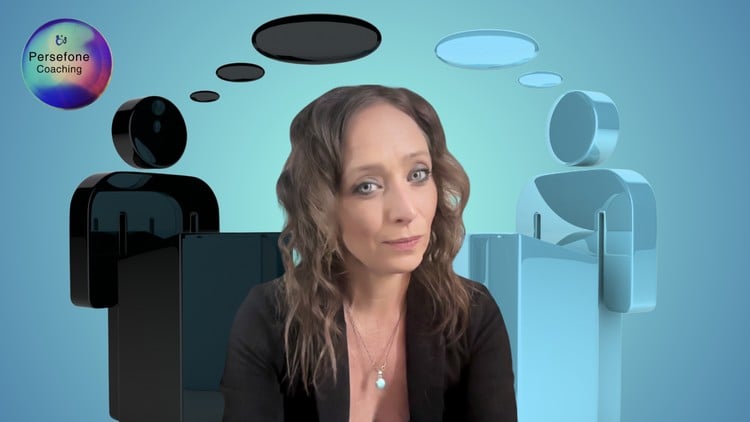
Learn to discuss divisive issues with clarity, empathy, and evidence-based arguments while managing emotions effectively
⏱️ Length: 5.4 total hours
👥 291 students
Add-On Information:
“`html
Note➛ Make sure your 𝐔𝐝𝐞𝐦𝐲 cart has only this course you're going to enroll it now, Remove all other courses from the 𝐔𝐝𝐞𝐦𝐲 cart before Enrolling!
-
Course Overview
- This course confronts the modern challenge of engaging constructively with divisive issues, shifting focus from winning arguments to fostering genuine, respectful dialogue. It explores the psychological and sociological dynamics that transform discussions into confrontations, equipping learners to proactively mitigate these factors and bridge societal divides. The curriculum emphasizes moving beyond superficial agreement to cultivate environments where intellectual honesty and diverse perspectives genuinely enrich understanding and collaboration.
- Delve into the art of empathetic discourse, understanding that effective communication on controversial topics starts with deep comprehension, not just persuasion. This program offers a holistic framework to transform highly charged interactions into productive exchanges, prioritizing self-awareness and principled conviction. It’s about developing the discernment and courage to articulate viewpoints with integrity, turning potential conflicts into opportunities for mutual learning across various contexts.
- Explore the critical need for nuanced communication in an increasingly polarized world, empowering individuals to rise above rhetorical noise with precision and compassion. The course builds confidence and competence in addressing contentious subjects, dismantling the fear of conflict by offering practical strategies for constructive engagement. It reframes disagreements as avenues for deeper insight and stronger relationships, enhancing both personal advocacy and collective understanding.
-
Requirements / Prerequisites
- No formal academic prerequisites are required, but a genuine openness to critically examine one’s own perspectives is essential. Participants should be willing to engage in self-reflection and step outside their comfort zone, particularly when confronting challenging beliefs. Basic literacy, access to a stable internet connection, and a device for streaming content are necessary for full participation.
- This course is designed for anyone encountering controversial subjects in daily life who desires to maintain relationships while discussing sensitive topics. It particularly suits individuals committed to fostering mutual respect amidst profound disagreement and willing to actively apply new communicative approaches. A desire to contribute to more civil discourse in society is the most valuable prerequisite.
-
Skills Covered / Tools Used
- Participants will master “steel-manning” an opponent’s argument, articulating their position with clarity and respect to uncover common ground or hidden assumptions. The course also teaches frameworks for identifying underlying values, interests, and needs driving different viewpoints, moving discussions beyond surface-level disagreements. This involves structured questioning and empathy mapping for deeper insight into emotional landscapes.
- Advanced strategies for rhetorical efficacy are covered, focusing on framing arguments to resonate with diverse audiences by appealing to shared values beyond mere facts. Learners will acquire techniques for crafting compelling narratives to illustrate complex points and make abstract concepts memorable. Proactive tension defusion methods, adapted from conflict resolution, are taught, emphasizing timing, vocal tonality, and body language to convey openness.
- The curriculum trains individuals in using analytical tools to dissect arguments, identifying logical fallacies, unsupported assertions, and cognitive biases in all reasoning. This systematic approach empowers precise, clear responses to complex arguments, moving beyond simply recognizing manipulation. Self-regulation techniques, integrating mindfulness and emotional intelligence, help maintain composure and clarity during emotionally charged statements, fostering resilience.
-
Benefits / Outcomes
- Upon completion, participants will be confident, articulate communicators capable of engaging diverse controversial subjects without fear of alienation. They will cultivate enhanced critical thinking skills, evaluating both external information and their own beliefs with greater intellectual honesty. This empowerment transforms individuals from passive observers into active, influential agents of constructive dialogue within their communities.
- A significant outcome is the ability to foster environments where productive disagreement is encouraged, turning potential confrontations into opportunities for collective learning. Graduates will excel at bridging ideological gaps and building trust, leading to reduced interpersonal stress and improved communication quality in all spheres. This ability empowers them to lead by example, modeling civil discourse and preserving relationships amidst strong convictions.
- This course promotes civic literacy, fostering a more robust democracy where differing opinions are debated thoughtfully. Graduates develop an unwavering commitment to evidence-based reasoning and ethical public discourse, becoming influential voices for reasoned dialogue. They gain nuanced insights into polarization, enabling them to counter misinformation and cultivate intellectual humility for a more informed and harmonious society.
-
PROS
- Highly Relevant and Timely: Addresses critical communication gaps in an increasingly polarized world.
- Actionable and Practical Frameworks: Provides adaptable strategies immediately applicable across various contexts.
- Fosters Personal Growth: Cultivates intellectual humility, emotional intelligence, and self-awareness beyond mere tactics.
- Promotes Positive Societal Impact: Equips individuals to be catalysts for civil, productive public discourse.
- Comprehensive Skill Development: Covers analytical reasoning, rhetorical framing, empathetic engagement, and conflict de-escalation.
-
CONS
- Effectiveness Reliant on Others’ Receptiveness: Successful application can be hindered if other parties are unwilling to engage constructively or operate in bad faith.
“`
Learning Tracks: English,Business,Communication
Found It Free? Share It Fast!